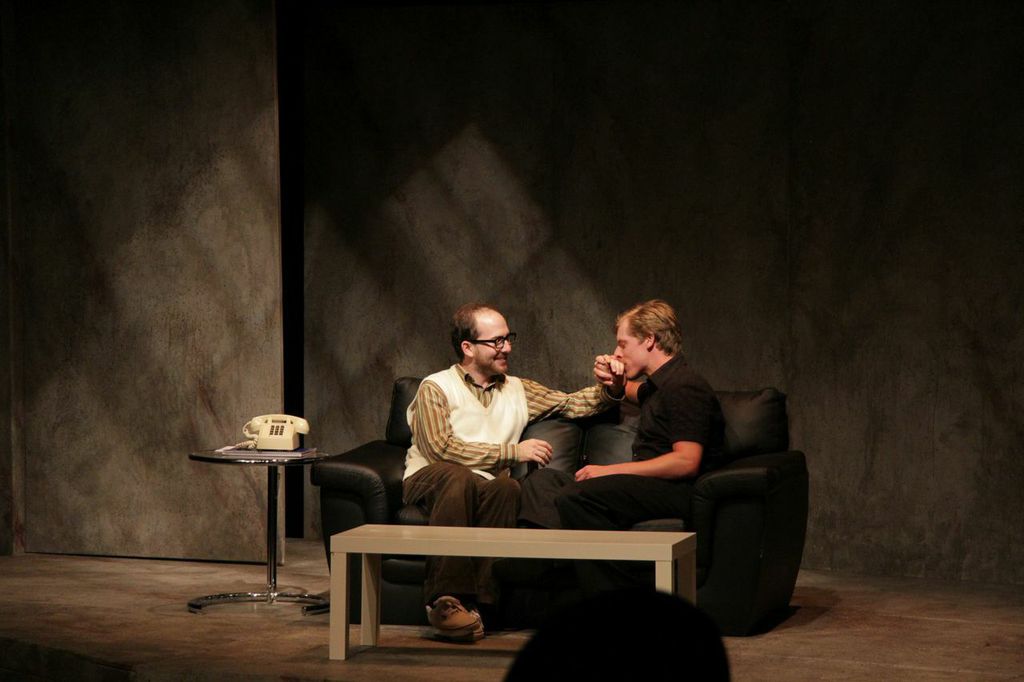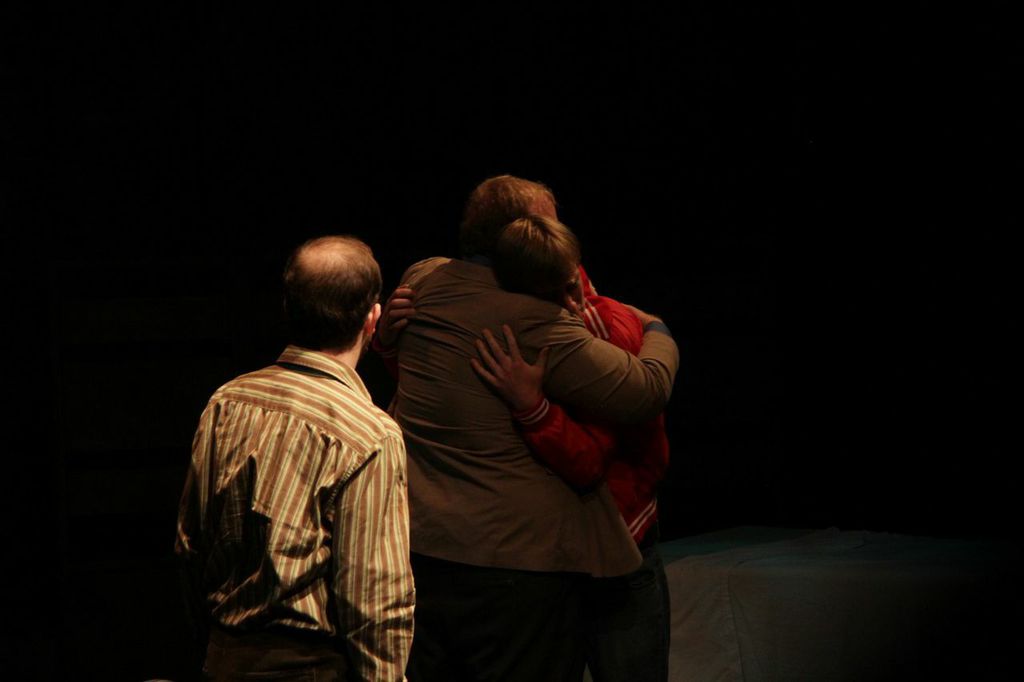
Credit: Matt Reznek
At the Jericho Arts Centre until August 16
www.ensembletheatrecompany.ca
Posted August 9, 2014
Lest we forget. Sixty-nine years ago today (August 9, the day this review was written), an atomic bomb was dropped on the city of Nagasaki killing between 60,000 and 80,000 Japanese mostly on the first day. Not to diminish the horror of that world-shattering event, approximately 2.3 million men, women and children died of AIDS-related death worldwide in 2005. That figure is dropping thanks to antiretroviral therapy. The life-giving ‘cocktail’, however, is not universally available and it is estimated that 1.6 million AIDS-related deaths occurred in 2012 – mostly in sub-Saharan Africa, South and South East Asia and the Caribbean.
Here at home, we now hear infrequently of death-by-AIDS. But back in the 80s, it felt like an epidemic. It was an epidemic. The theatre community was hit especially hard. Amongst the many Vancouverites was Larry Lillo, then one of the best artistic directors The Vancouver Playhouse has ever known. A diagnosis of ‘HIV-positive’ was a death sentence – either sooner or later and never pretty.
Larry Kramer’s 1985 play The Normal Heart begins with a heart-wrenching scene in which David (Matthew Beairsto), a young gay man, gets that devastating news. “I’m gonna die”, he tells his friends. And he does.
The play is largely autobiographical; Kramer was an outspoken co-founder of the GMHC – so controversial in the 80s that it didn’t even risk spelling out its name: Gay Men’s Health Crisis. In the play, Ned Weeks (Kazz Leskard) is Kramer’s surrogate and he is loud, opinionated, confrontational and at odds with the other, more cautious members of the organization. Leskard begins angry and escalates from there making Weeks a hard-to-like hero. Weeks’ message – “Gay men should stop having sex” – can’t work but his passion is admirable.
In complete contrast to Weeks is Bruce Niles (Zac Scott), a closeted gay bank manager. But Niles’ cool attitude makes him even less likely as a hero.

Credit: Matt Reznek
There are eleven in the cast, directed for Ensemble Theatre Company by Tariq Leslie, the company’s artistic director. Ten are men; one is a woman. But if you’re looking for a hero in this play, it would be Dr. Emma Brookner (Rebecca Walters). The character is based on real-life Dr. Linda Laubenstein who, along with Dr. Alvin Friedman-Kien, published the first article linking AIDS with Kaposi’s sarcoma. Like Laubenstein, Dr. Brookner is portrayed as a polio survivor in a wheelchair. It is Brookner who rages against the poor media coverage by the New York Times despite that fact that, at that time, more gay men were dying in that city than in any other city in the country. And she exposes the appalling lack of funding for AIDS research. Walters, spotlit by lighting designer Darren Hales, lets go a stream of vitriol that captures all the fear, frustration and fury of the period. It’s the speech that Kramer has been leading up to since the beginning of the play.
Not the one to ask, I didn’t feel much sexual excitement between Weeks and his lover Felix (Daniel Meron) and I found it hard to believe that Weeks would forget a night of sex with Felix some time in the past. (Weeks, like Kramer, objected to promiscuity and probably didn’t have a long list of past sexual partners.) But Meron is a sweet, likeable character whose death is a heartbreaker.
The Normal Heart is an awkward play probably because the intended hero – the playwright himself – is both heroic and anti-heroic. But it is undeniably faithful to the period fraught as it was with panic and pain.
From Canadian AIDS-activist Stephen Lewis’s 2013 address: “The painful truth is that the international community is losing interest in AIDS. Everyone—including governments and UN agencies—talks of an “AIDS-Free Generation.” Funding is plummeting. It’s as though the pandemic is over.”
It’s not over.

Credit: Matt Reznek

